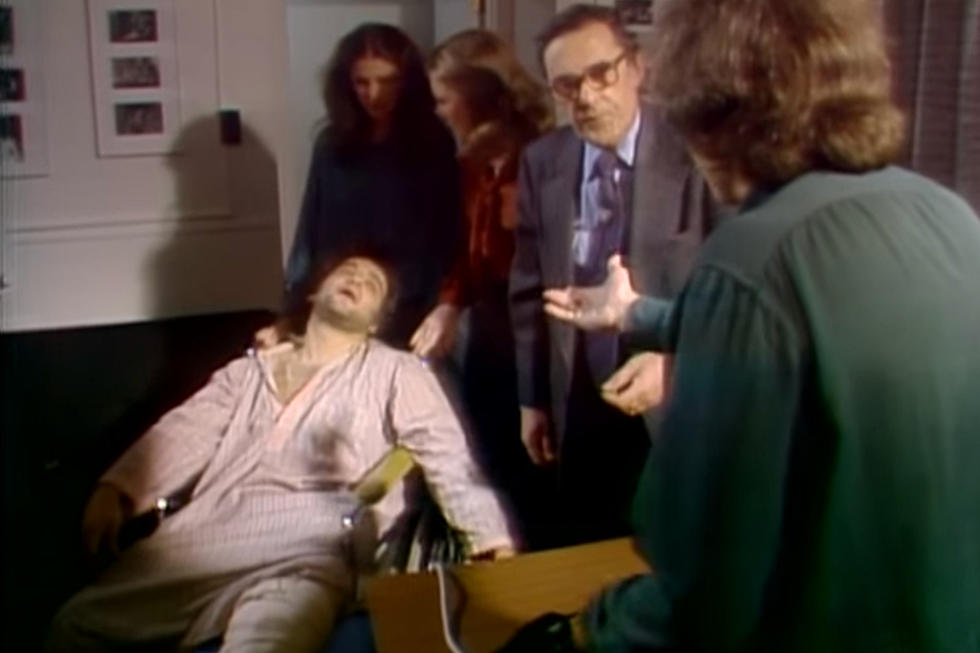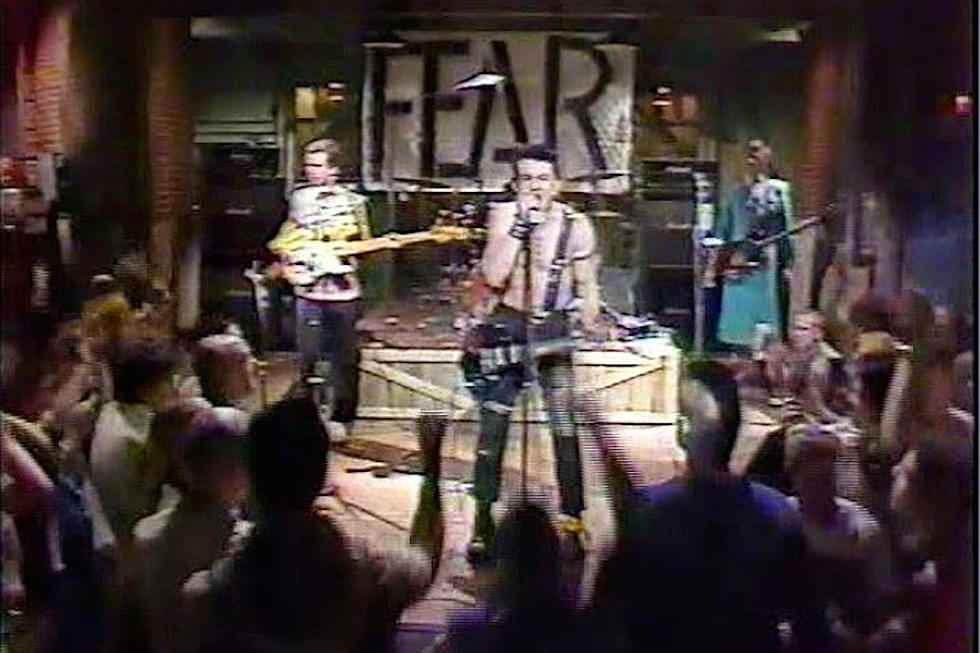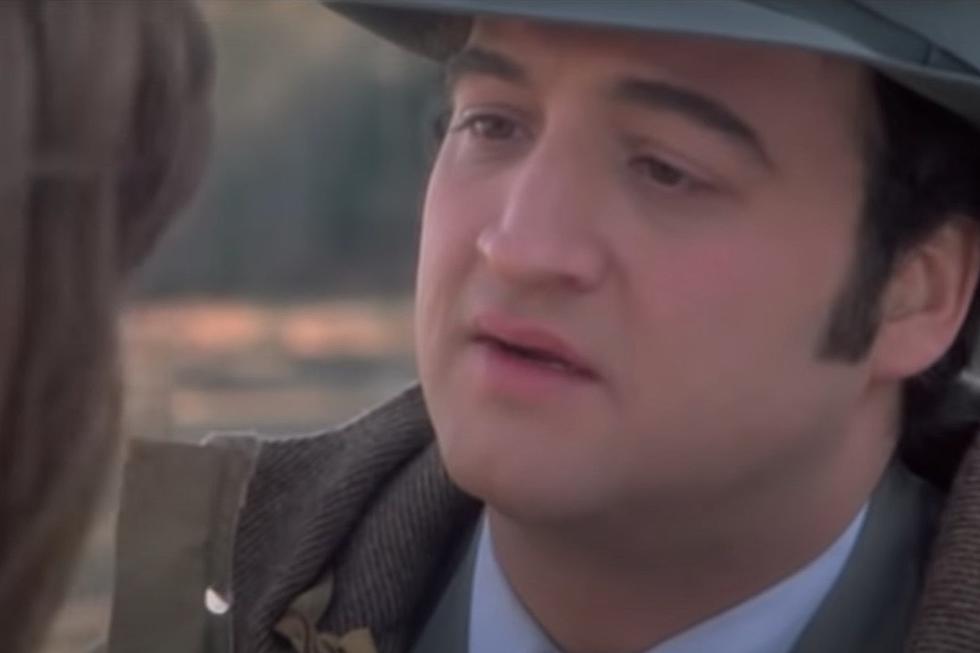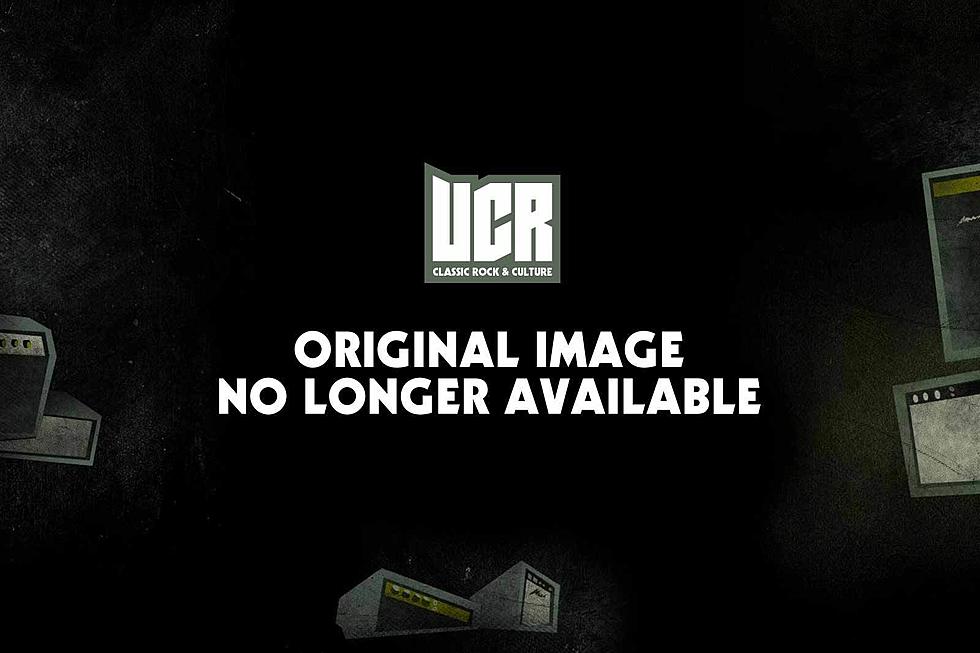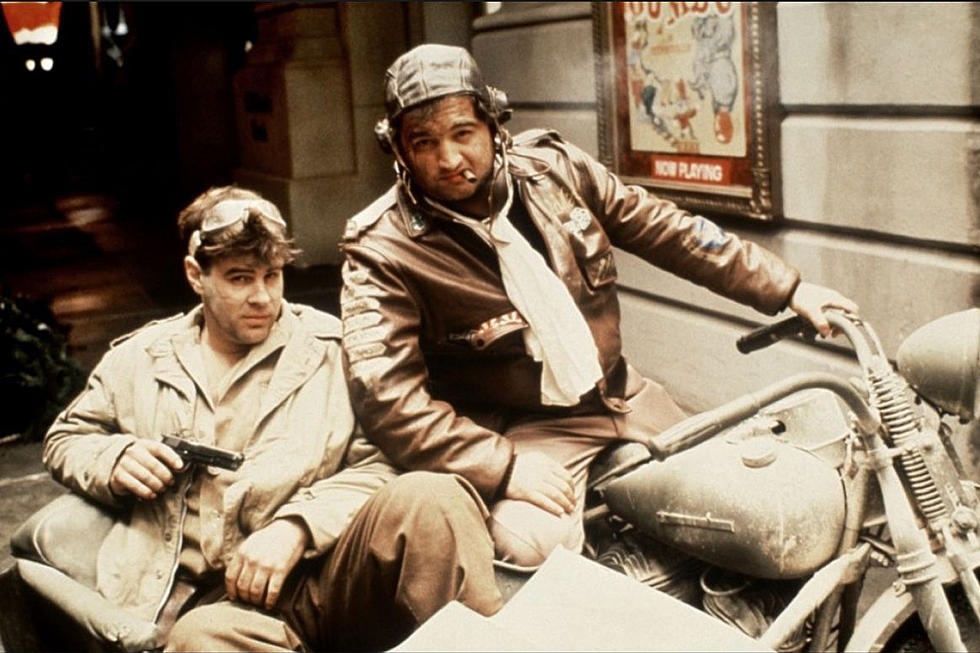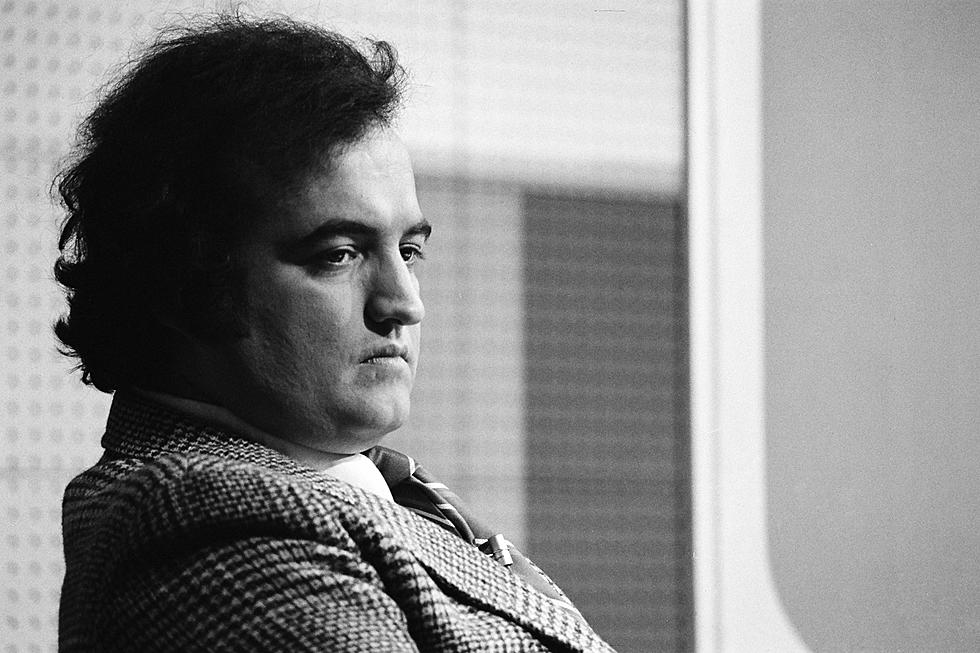
40 Years Ago: John Belushi’s Death Shocks the Comedy World
John Belushi’s death on March 5, 1982, was as shocking as, in retrospect, it now seems inevitable.
Belushi, who’d rocketed to television superstardom as one of Saturday Night Live’s original cast of Not Ready for Prime Time Players before becoming a bona fide movie star thanks to The Blues Brothers and National Lampoon’s Animal House, was found unresponsive in a bungalow at Los Angeles’ famed Chateau Marmont hotel. He was 33 years old.
After gaining fame onstage in his native Chicago (Belushi was born in nearby Wheaton, Ill.) as a member of the famed Second City, and as part of both National Lampoon’s Radio Hour and its Woodstock-parodying concert show Lemmings, Belushi was reluctantly cast in 1975 by Saturday Night Live producer Lorne Michaels. That hesitancy came from both sides, as Belushi’s staunch anti-TV ranting (he told Michaels his television was covered in spit) vied with the young Canadian producer’s intuition that Belushi would simply be too much trouble on the set of his groundbreaking and risky new late-night venture.
Both concerns turned out to have merit in the end, as Belushi at first chafed under the ascendant stardom of breakout first-year cast member Chevy Chase, and Michaels frequently bore the brunt of mercurial ensemble player Belushi’s complaints — and his escalating hostility and drug-fueled temper. It was only after Chase’s departure before Saturday Night Live’s second season that Belushi, alongside lifelong comedy partner Dan Aykroyd, truly seized the reins, becoming one of the most recognizable and beloved stars on TV.
Watch John Belushi on 'Saturday Night Live'
It’s not difficult to see why, as the beefy but nimble Belushi hurled himself into sketches with the seemingly effortless charisma that made him, in fellow SNL castmate Bill Murray’s words, “the best stage actor I’ve ever seen.” Belushi had an elfin charm that, with the lift of an expressive eyebrow, could provoke gales of grateful laughter. In addition to his characterizations on Saturday Night Live, Belushi projected a naughty air of defiance that, as much as anything else, embodied the show’s anarchic, post-Watergate disillusionment with the status quo.
Leaving the show alongside Aykroyd in 1979 to star in the Aykroyd-penned film The Blues Brothers (based on the black-suited blues duo they created for SNL), Belushi built upon the big screen stardom kicked off by his role as gonzo fratboy John “Bluto” Blutarsky in 1978’s Animal House. While The Blues Brothers’ over-the-top comic excesses (and resulting budget) were unprecedented (especially for a comedy about two deadpan characters spun off from a comedy sketch), the movie was the perfect vehicle to showcase Belushi’s signature charisma. His taciturn, shades-wearing “Joliet Jake” Blues didn’t say much, but he didn’t need to to turn the character and the film into cult sensations.
Listen to Blues Brothers' 'Soul Man'
Unfortunately, substance-abuse issues ran parallel to Belushi’s unprecedented success. (At one point, he was the unquestioned drawing card for the country’s most popular TV show, film and album, as the Blues Brothers' first record, Briefcase Full of Blues, hit No. 1 on the Billboard chart.) Belushi’s time at Saturday Night Live is filled with anecdotes of drunken and stoned antics and abusive unpredictability (and unfortunate misogyny toward the show’s female castmates and writers), traits that only worsened as cocaine came on the scene.
Making the leap to Hollywood only exacerbated what friends now recognize as a substance-abuse problem. Belushi’s intake of drugs was legendary, as the comic cultivated a persona as an indestructible wild man, a role he was only too happy to embody in an entertainment landscape where excess and enablement were just part of the scene. Loved ones from his wife Judy to best friend Aykroyd found themselves increasingly in the role of watchdogs against Belushi’s worst impulses, even going so far as to hire Secret Service-trained minders to steer him away from self-destruction.
Looking back, friends and costars lament that they, as much as society at large, weren’t prepared for Belushi to take their laissez-faire attitudes of the day regarding drugs into such destructive territory. The late Carrie Fisher, who starred alongside Belushi and onetime finance Aykroyd in The Blues Brothers, later lamented that awareness of drug abuse as an illness was only truly emerging at the time of Belushi’s death. Noting that famed rehab facility the Betty Ford Center opened its doors only six months after Belushi’s 1982 death, Fisher, in the SNL oral history Live From New York, said, “The thing I regretted about John is he hadn’t had a scare. ... He just went straight to death.”
That death came after Belushi, stinging after the critical and box-office failures of both Steven Spielberg’s bloated WWII comedy 1941, his Blues Brothers follow-up with Akyroyd, Neighbors, and the change-of-pace romantic comedy Continental Divide, holed up in the Chateau Marmont to work on what he hoped would be his ambitious comeback, a wine-country screwball crime comedy called Noble Rot, written by former Saturday Night Live costar Don Novello. It was there that Belushi, who’d recently returned to heavy drug use after a few years of relative sobriety, started incorporating heroin into his daily routine.
On the evening of March 4, 1982, Belushi was injected with a “speedball,” a combined cocaine-heroin cocktail, by an acquaintance and longtime drug- and music-scene figure named Cathy Smith, who left the passed-out Belushi in the small hours of March 5.
During the previous day and night, fellow stars Robert De Niro and Robin Williams also visited Belushi’s bungalow and indulged in cocaine, with rumors at the time circulating that Smith was a police informant, setting the trio of stars up for a major bust. (Smith later unwisely sold her story to the National Enquirer, leading to her eventual conviction for involuntary manslaughter.)
Watch WGN Report John Belushi's Death
In his career, it’s shocking to recognize that, for such an enduring figure, John Belushi appeared in only seven movies and one television show. Following up on Bill Murray’s words, it’s not unreasonable to imagine the Murray-esque career comeback for the multitalented Belushi as both a comic and dramatic leading man, had he managed to emerge from the other side of his addictions. After the publication of Bob Woodward’s 1984 biography of fellow Wheaton native Belushi, Wired, Akyroyd and others decried the author’s portrait of Belushi as an out-of-control addict, not so much disputing the facts presented as suggesting that the humorless Woodward didn’t also capture Belushi’s depths as an artist and person.
Still, the image of John Belushi the invulnerable life of every party has lived on, even when, perhaps, it shouldn’t. Later SNL star Chris Farley’s open and vocal worship of Belushi’s persona saw the similarly burly and boisterous comic dying under strikingly similar circumstances to his idol, as Farley succumbed to a speedball of cocaine and morphine in 1997. He, like Belushi, was 33.
John Belushi's Grave Site
John Belushi Movies Ranked
More From
